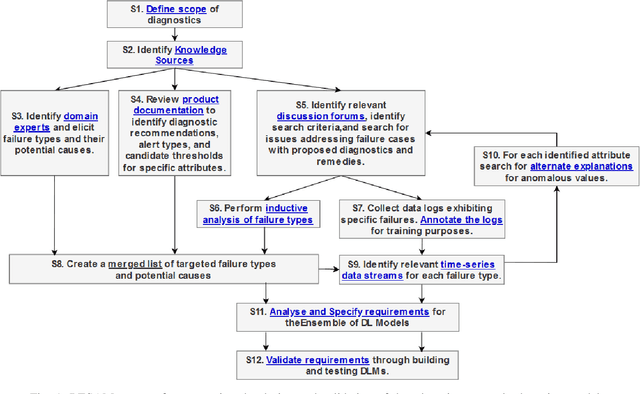Pedro Alarcon Granadeno
RESAM: Requirements Elicitation and Specification for Deep-Learning Anomaly Models with Applications to UAV Flight Controllers
Jul 18, 2022



Abstract:CyberPhysical systems (CPS) must be closely monitored to identify and potentially mitigate emergent problems that arise during their routine operations. However, the multivariate time-series data which they typically produce can be complex to understand and analyze. While formal product documentation often provides example data plots with diagnostic suggestions, the sheer diversity of attributes, critical thresholds, and data interactions can be overwhelming to non-experts who subsequently seek help from discussion forums to interpret their data logs. Deep learning models, such as Long Short-term memory (LSTM) networks can be used to automate these tasks and to provide clear explanations of diverse anomalies detected in real-time multivariate data-streams. In this paper we present RESAM, a requirements process that integrates knowledge from domain experts, discussion forums, and formal product documentation, to discover and specify requirements and design definitions in the form of time-series attributes that contribute to the construction of effective deep learning anomaly detectors. We present a case-study based on a flight control system for small Uncrewed Aerial Systems and demonstrate that its use guides the construction of effective anomaly detection models whilst also providing underlying support for explainability. RESAM is relevant to domains in which open or closed online forums provide discussion support for log analysis.
 Add to Chrome
Add to Chrome Add to Firefox
Add to Firefox Add to Edge
Add to Edge